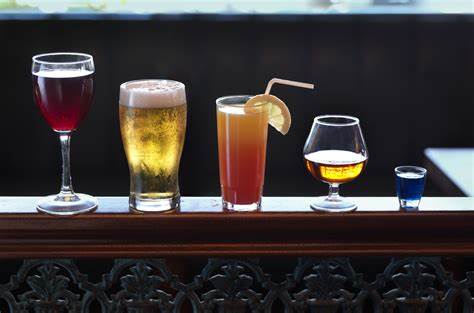
Alcohol consumption is a common part of many people’s lives, but it can have serious consequences for men’s health. While moderate drinking is generally considered safe, excessive alcohol consumption can lead to weight gain and other health problems. In this article, we will explore the link between alcohol consumption and weight gain in men, and discuss what men need to know in order to make informed decisions about their drinking habits.
First, it is important to understand that alcohol contains calories. A single 12-ounce beer contains approximately 150 calories, while a 5-ounce glass of wine contains approximately 120 calories. These calories can add up quickly, and can contribute to weight gain over time. Additionally, alcohol can interfere with the body’s ability to burn fat, making it more difficult to lose weight.
Alcohol can also lead to poor dietary choices. People who drink alcohol are more likely to make unhealthy food choices, such as eating high-calorie snacks or skipping meals. This can lead to weight gain over time.
Finally, alcohol can interfere with sleep. Poor sleep can lead to increased hunger and cravings for unhealthy foods, which can contribute to weight gain.
In order to avoid weight gain associated with alcohol consumption, men should limit their intake to no more than two drinks per day. Additionally, men should be mindful of their dietary choices when drinking, and should avoid high-calorie snacks and meals. Finally, men should ensure that they are getting enough sleep each night in order to avoid cravings for unhealthy foods.
By following these guidelines, men can reduce their risk of weight gain associated with alcohol consumption. By making informed decisions about their drinking habits, men can enjoy the social benefits of alcohol without compromising their health.
The Pros and Cons of Low-Calorie Alcoholic Beverages: What Men Should Consider
Alcohol consumption is a popular pastime for many men, but it can also be a source of health concerns. Low-calorie alcoholic beverages offer an alternative to traditional drinks, but there are both pros and cons to consider before making the switch.
Pros
The primary benefit of low-calorie alcoholic beverages is that they contain fewer calories than traditional drinks. This can be beneficial for men who are trying to maintain a healthy weight or lose weight. Low-calorie drinks can also help reduce the risk of developing health problems associated with excessive alcohol consumption, such as liver disease and high blood pressure.
Low-calorie drinks are also often lower in alcohol content than traditional drinks, which can help reduce the risk of alcohol-related accidents and injuries. Additionally, low-calorie drinks can be a good option for men who are trying to reduce their alcohol consumption but still want to enjoy a drink.
Cons
One of the main drawbacks of low-calorie alcoholic beverages is that they often contain artificial sweeteners and other additives that can be unhealthy. Additionally, some low-calorie drinks may contain fewer calories, but they can still contain a significant amount of alcohol, which can be dangerous if consumed in excess.
Another potential downside of low-calorie drinks is that they can be more expensive than traditional drinks. Additionally, some people may find that low-calorie drinks do not taste as good as traditional drinks, which can make them less enjoyable to drink.
Conclusion
Low-calorie alcoholic beverages can be a good option for men who are trying to reduce their calorie intake or reduce their alcohol consumption. However, it is important to consider the potential drawbacks of these drinks before making the switch. Men should also be aware of the potential health risks associated with excessive alcohol consumption, regardless of the type of drink they choose.
Strategies for Navigating the Beer Belly Myth: Tips for Men to Enjoy Alcohol Responsibly and Healthily
1. Set Limits: Before you start drinking, decide how much you will drink and stick to it. This will help you avoid overindulging and reduce the risk of developing a beer belly.
2. Choose Low-Calorie Options: When selecting your drinks, opt for lower-calorie options such as light beer, wine, or spirits with diet mixers. This will help you reduce your calorie intake and avoid the dreaded beer belly.
3. Alternate Drinks: Alternate between alcoholic and non-alcoholic drinks throughout the night. This will help you stay hydrated and reduce your overall alcohol consumption.
4. Eat Before Drinking: Eating a healthy meal before drinking will help slow the absorption of alcohol and reduce the risk of developing a beer belly.
5. Exercise Regularly: Regular exercise is essential for maintaining a healthy weight and avoiding the beer belly. Aim for at least 30 minutes of physical activity each day.
6. Avoid Binge Drinking: Binge drinking can lead to an increase in abdominal fat, so it’s important to avoid this behavior.
7. Monitor Your Weight: Keep an eye on your weight and waist circumference to ensure you’re not gaining excess fat around your midsection.
By following these tips, you can enjoy alcohol responsibly and healthily without worrying about the beer belly myth. Remember, moderation is key!

Leave a Reply